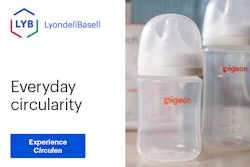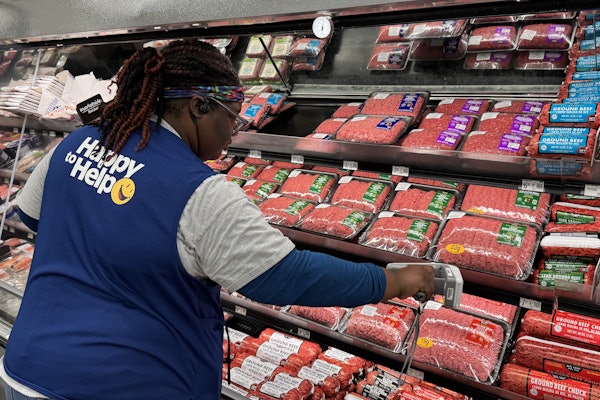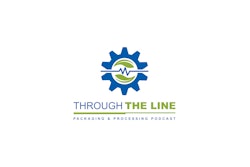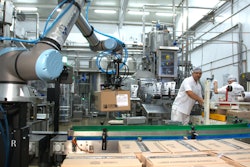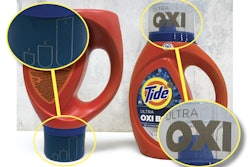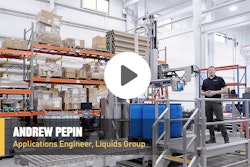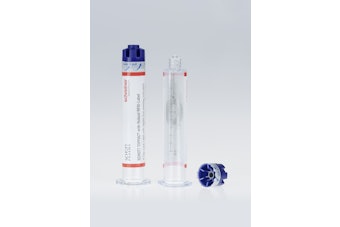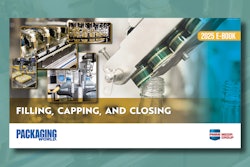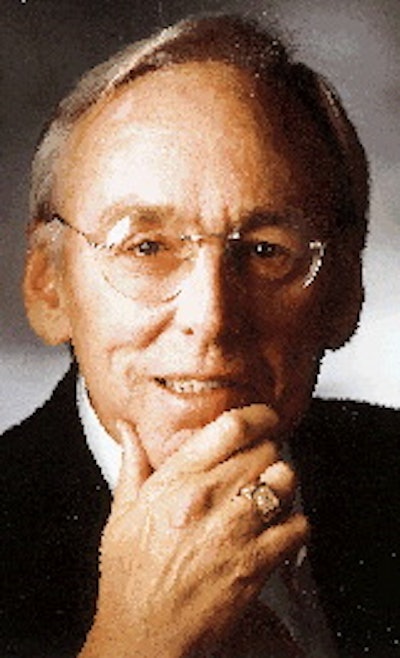
His message was so clear that I've done just a little selective editing. "Tonight, I give my answer to a single question: How do you achieve a sustainable, distinctive competence in a business? Answering this question has been the most important lesson of my career. "I know that, in the audience, we have industry suppliers, industry leaders, faculty and most important, students. My comments are really aimed at the students, the future leaders of our paper industry. The University of Maine provides the premier preparation for the [paper] industry. It's that good. You don't realize it now, but before you turn around twice, you'll be the mill managers, the officers, the leaders of our industry. "So... to my critical question, 'How do you achieve a sustainable, distinctive advantage?' In my experience, the only sustainable distinctive competence comes from people. Yes, everything you have learned-all your engineering courses-are not as important as this simple concept. "Think about it. Anyone can buy the fiber, the chemicals, the equipment, the energy. What, then, separates the winners from the losers? The collective decisions, the actions, the accomplishments and contributions of your people. "How do you achieve this sustainable distinctive competence? You must become and remain the preferred employer so that you can attract the best and brightest. You must create the environment where they can grow, develop and maximize their accomplishments and contributions. "Some years ago, I read a study in which [researchers] were trying to determine what creates a world-class company. After endless analysis on a myriad of attributes, they found that the only common ones were truth-telling, promise-keeping and caring. "I believe it has been proven time and again, as companies have tried the 'management flavor of the month'-everything from the one-minute manager to total quality to re-engineering to economic value-added and on and on and on-that these are not the silver bullets that lead to world-class performance. I will argue that the silver bullet may indeed be caring. Failure to be truth-tellers and promise-keepers may stop you from becoming the preferred employer, but it's caring that gets you there. "Perhaps it's one of the reasons why improved safety correlates with improved results. It's my experience that caring companies work hard on safety. "I want to tell you a little story that I believe illustrates the power of caring. I was fortunate in discovering the importance of caring some 36 years ago in an ROTC [reserve officer training] summer camp. For those of you who may not have had this experience, it involves thousands of cadets coming from across the country to, in my case, Ft. Belvoir, VA, to be formed into platoons and companies, much like they would be if they were on regular, active duty. The difference is there is a regular Army cadre that duplicates the key leadership positions. "In addition, the cadets rotate jobs, so that one day you may be squad leader, the next day a squad member, and the following day a company commander. But as you do the key jobs, the regular Army cadre is there to help, coach and teach. "The regular Army company commander assigned to my company was not a very dynamic officer. He was not a great communicator. He was not a great strategist. He was not very inspirational. In fact, even through the first week, he had not given a presentation to the cadets or even introduced himself. We didn't know who he was! "Each day, in the mess hall for our company, during meals, we noticed a regular Army major observing and making sure that everything was being done well. It was more than a week before the cadets figured out that this major was our company commander. You see, he had figured out that the most important thing for a bunch of college kids going through this rigorous training was food. Quantity, quality, timeliness-all in the form of food. "We also figured out that his involvement with this nonglamorous, unchallenging, boring activity was because he cared. I soon watched with interest the development of an organization that was willing to do anything for this officer. Clearly, caring was more important than all of the other normal attributes of leadership. This cadet company went on to win most of the awards that summer, far outpacing the results of the many other companies. "At Fraser, I choose managers who have this quality of caring. I look for people who come to work each day trying to make life better for the people they are entrusted to manage. Now, don't get me wrong, this doesn't involve being a wimp. You can't give the company away or give up your right to manage. "At Fraser, we have a credo-a document that lays out how we are going to treat our customers, employees, communities and our owners-as we pursue our vision. Read that credo and see if it is not the environment that you would like to work in. If you are lucky enough to work for Fraser, come and help us live up to that credo. If not, I urge you to create that kind of environment wherever you work. "Of course, the concept of caring is not a new one. The management consulting firm, Wirthlin Worldwide, for example, uses something called 'The Seven Pillars of Leadership' in its seminars. On its list of leadership principles, caring is number one. "Fortune magazine also recognized the value of people. An article in its January 12, '98, issue reported on the 100 best companies in America to work for. It pointed out the correlation between preferred employer rankings with the growth and return performance for these companies. Clearly, America's top companies know that people are the key to achieving a sustainable, distinctive advantage. "What struck me most in that issue of Fortune-aside from the article on the best companies to work for-was the headline of the article that immediately followed: 'Boeing's Big Problem: It's a great time to be an airplane builder. If Boeing could learn to make aircraft efficiently, it could be a truly great company.' "If you have followed the business news for the past years, you will recall that Boeing is legendary for its repeated layoffs. I would argue that if it treated its people that way, it has to lead to problems. "Companies that do not care and are not truth-tellers and promise-keepers will not be the preferred employers. Companies that throw out people after they have dedicated the better part of their productive life to the company, that renege on commitments made to their employees, that discriminate on even such minor issues as national origin, that do not retain, reward and promote a diversified workforce based on individual accomplishments and contributions, are not likely to grow and prosper. Indeed, they should not. "You students are about to enter a much maligned, yet truly great industry. Paper is one of the largest of the North American manufacturing industries. It is one of the few industries that has defended its market share by being competitive in a global market. We make biodegradable products, [products] that are recyclable and come from renewable resources. We produce much of our own energy needs from our own waste. Our products are the hallmarks of an advanced free society-our newspapers, the foundations of free speech; textbooks for the education of our children; packaging papers that ensure clean, disease-free foods; the obvious benefit of our sanitary grades. Indeed, paper touches our lives from birth certificate to death certificate. "Never doubt that you have joined a great industry that does great societal good. But, let me challenge you with something. In the Fortune article I mentioned, there is not one forest products company on the top-100 list. I challenge you, as the future industry leaders, to make your company the first forest products company on the list. "In conclusion, as you go forth in your careers, worry first about taking care of your people and, in turn, they will take care of you." John Wasserlein retired from Fraser Papers in June-long before he had an opportunity to place his company in that top-100 list. His successors may reach that accomplishment in his name, or his competitors may first reach that goal. Nonetheless, Wasserlein recognized that the quality of their employees enables companies to accomplish their goals. His presentation to the University of Maine graduating class this spring helps PW to crystallize its message of why people continue to be the defining difference between one company and another in achieving strong customer support and service. This month we continue our coverage of "The Staffing Struggle: Attracting and keeping packaging people in a tight labor market," (see PW, Oct. '98, p. 87). This month's guest editorial by John Wasserlein (p. 80) emphasizes the importance of company attitude in retaining good people, while it also challenges the paper business to improve its overall attitudes. Following up on that theme, Pat Reynolds explains how opportunities for career advancement, different types of work within a company and training to improve knowledge and skills are other ways companies can show their interest in packaging people. It all boils down to treating them well, an article that begins on p. 86. All else being equal, a comprehensive training program to improve the knowledge and skill levels of hourly workers can be very attractive. When Hunt-Wesson decided to build a new Snack Pack pudding plant in Waterloo, IA, the company worked closely with Hawkeye Community College to develop extensive technical training for workers hired for a super-sophisticated and automated plant. At its start-up last August, all of the plant's skilled workers had a minimum of a two-year technical degree, plus many weeks of specialized training. Read how Hunt-Wesson accomplished this, beginning on p. 94. PW editors spoke with many experts in packaging and in recruiting for this series. Our list of contacts for articles in this issue (and last month) is on p. 100. Finally, our coverage this month concludes with a piece on p. 102 by consultant Phil Perry, who describes some techniques for keeping part-time workers motivated. It's accompanied by some statistics from the Bureau of Labor Statistics forecasting the outlook for some packaging jobs in the future. If attitude and opportunity don't quite measure up, you can be sure that people do notice the total on their paycheck. But salary increases aren't the only way to satisfy people financially. Bonuses and stock options are other techniques that can either attract or retain people. Next month, Dave Newcorn reports on financial rewards for packaging people. As with any articles that we publish in PW, we'd be interested in your comments about whether this special two-part coverage is helpful to you, either personally or for your department or company. Contact us at One IBM Plaza, Suite 2401, Chicago, IL 60611; or phone: 312/222-1010; fax: 312/222-1310; or e-mail us at [email protected].





